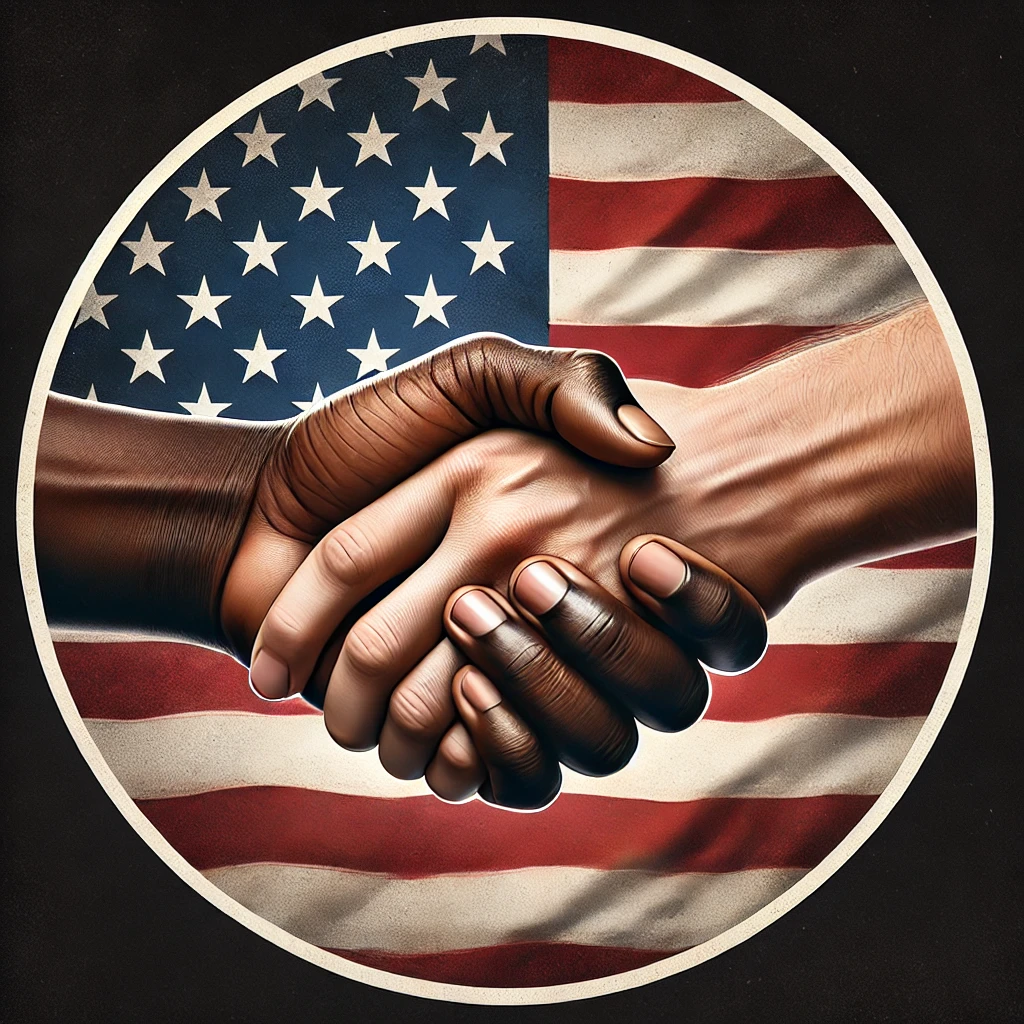Table of Contents
American Negro History
Facts to share when called a Racist or Uncle Tom
- Africans enslaved Africans then sold them to the Spaniards.
- All culture had slaves……Since the beginning of time….
- 1 % of whites owned slaves……Depending on the State
- 1650 – Anthony Johnson – one of the FIRST Negro slave owners
- Whites smuggled negroes north…. QUAKERS – Underground Railroad
- Negroes were slaves…. but were not and are not victims.
- Early 1800’s, Cherokee, Choctaw, Chickasaw owned thousands of negro slaves
- 1830 – 3775 Free Negroes owned approx. 13,000 Negro slaves
- F. Douglas book –“Narrative of the life” – Laws were created that Criminalized Negroes killing their owners (NOT Victims)
- 1860 William Ellison (Negro) owned 63 slaves in SC, largest of the 171 slave owners
- 1861 – April Civil war began at the Battle of Ft Sumter
- 1862 – Emancipation Proclamation (Executive order)
- 1865 – April: President Lincoln’s assassination
- 1865 – May: End of the Civil War (700,000 deaths mostly white men)
- 1865 – Dec: 13th amend Freed slaves (ratified)
- 1868 – 14th amend Negroes citizenship with equal protection under the law
- 1865 to 1960 – Negroes had the GREATEST grow in the history of mankind, while facing – 400 years of slavery, JIM crow laws, KKK, segregation. (All Democrat policies and strategies)
- Negroes – prior to the 60’s 80% had a mom and dad in the home (Greater than whites at the time)
- Democrat social programs of the 1960…white and black Dems agreed with these destructive policies.
- Early 1960’s, LBJ’s Nigger money: “Gonna give these Niggers money and they’ll vote democrats the 200 years”.
- 1964 – Civil rights act
- What slavery, Jim Crow laws and the Dem’s KKK could not achieve, one generation of Socialism almost destroyed the Negro family
- 1973 –Legalizing (genocide) Abortions, 6% of the population (Negroes) to date are responsible for a third (25 million) of all abortion in the U.S. 4 times that of whites
- The plight of the American Negro in the inner cities is directly associated with SOCIALISM and NO FATHERS…. NOT SLAVERY and NOT White People of today
- 8 to 10 thousand Negroes killed every year, (by Blacks) for decades 0ver 200 every week (White people are not responsible for this problem)
Introduction: The Complex History of American Negroes
The Complex Legacy of American Negro History
The history of American Negroes in the United States is often oversimplified, masking the depth and complexity of their experience. From the brutal days of slavery to the ongoing struggle for equality, the story of American Negroes is one marked by resilience, determination, and triumph. However, this narrative is more intricate than many realize. It challenges the simplistic views often held about race in America, highlighting a journey that is both inspiring and instructive. Understanding this history is crucial, especially when faced with modern accusations of racism or labels like “Uncle Tom.” A deeper exploration reveals the nuanced realities that shaped American Negro history, offering valuable insights for today’s discussions on race and identity.
Challenging Perceptions Through Historical Facts
A closer examination of American Negro history reveals a story that defies common stereotypes and misconceptions. The contributions and struggles of American Negroes are not just tales of victimization but also of agency and influence. From their involvement in early American society to their pivotal role in the fight for civil rights, American Negroes have consistently shaped the nation’s history in profound ways. This history is essential for anyone seeking to engage in meaningful conversations about race in America. By understanding the full scope of American Negro history, individuals can challenge the oversimplified narratives that often dominate discussions on race, leading to a more informed and respectful dialogue.

African Slavery: A Global and Historical Perspective
A Global Perspective on Slavery in Human History
Slavery is not unique to any single culture or race; it has been a pervasive aspect of human history, affecting civilizations worldwide. While American Negroes endured the horrors of slavery, it is crucial to recognize that Africans also enslaved their own people and sold them to European traders, including the Spaniards. Slavery was not limited to Africa—it existed in various forms across many cultures and was often seen as a social and economic institution. Viewing slavery as a global phenomenon, rather than a singular event tied to one race, offers a more comprehensive and balanced understanding of history. This perspective challenges the narrative that exclusively blames white people, acknowledging the complex realities of human history.
Challenging Simplified Narratives of Slavery
The history of slavery is far more complex than the simplified narrative that solely blames white people for past atrocities. While American Negroes were victims of slavery, it’s essential to recognize that Africans also played a significant role in the slave trade, capturing and selling their fellow countrymen. This was not unique; many cultures throughout history have practiced slavery as an accepted institution. Acknowledging these facts doesn’t absolve any group of guilt but offers a more nuanced understanding of human history’s complexities. By challenging the notion that all white people are solely responsible for slavery’s legacy, we can foster a more informed and balanced discussion about its enduring impact.
The Reality of Slave Ownership in America
The Complex Reality of Slave Ownership in American Negro History
It is a little-known but significant fact that only about 1% of white Americans owned slaves, with slave ownership varying widely from state to state. This statistic challenges the widespread perception that all white Americans were directly involved in or benefited from the institution of slavery. Understanding this detail is crucial in broadening our comprehension of American Negro history, as it reveals that the narrative of universal complicity among white Americans oversimplifies a far more complex situation. Additionally, this statistic highlights the socio-economic dynamics of the time, where only a small percentage of the population could afford to participate in the institution of slavery, further complicating discussions around racial responsibility and historical blame.
Nuanced Perspectives on Slave Ownership: The Case of Anthony Johnson
Adding another layer to the complexity of slave ownership in American Negro history is the case of Anthony Johnson, one of the first documented Negro slave owners in America. Johnson, who himself was of African descent, challenges the simplistic notion that race was the sole determinant of who could own slaves in America. His story underscores the fact that the institution of slavery was not exclusively a black-and-white issue, both figuratively and literally. Understanding these nuances is essential for anyone seeking to engage in informed and meaningful discussions about American history. By recognizing that slave ownership was influenced by factors beyond race, we can approach conversations about racial responsibility with a more informed and balanced perspective.
Free Negroes and Slave Ownership
The Overlooked Reality of Slave Ownership Among Free Negroes
The history of slavery in America is often simplified to a narrative of white oppressors and black victims, but the reality is more complex. A frequently overlooked fact is that by 1830, approximately 3,775 free Negroes owned about 13,000 Negro slaves. This statistic challenges the conventional understanding of slavery as a purely racial issue and highlights that it was also deeply rooted in economic factors. The participation of free Negroes in slave ownership reveals that the institution of slavery was not solely defined by race but was also influenced by social and economic dynamics. Recognizing this complexity is crucial for a more accurate understanding of American Negro history.
Challenging Simplistic Narratives: Free Negroes as Slave Owners
The involvement of free Negroes in slave ownership offers a nuanced perspective that complicates the common narrative of American slavery. The fact that thousands of free Negroes owned slaves underscores that the institution of slavery was not exclusively about race but was also an economic system in which even those who were once enslaved could participate. This reality disrupts the simplistic view that all American Negroes were merely victims of slavery, offering instead a more intricate picture of a society where race, economics, and power were deeply intertwined. Understanding these complexities is essential for anyone seeking to engage in informed discussions about the history of slavery in America.

The Role of Native American Tribes in Slavery
Native American Tribes and Their Role in American Negro Slavery
The history of American slavery extends beyond the commonly told narrative of white Americans owning Negro slaves. A significant yet often overlooked aspect is the involvement of Native American tribes in the institution of slavery. In the early 1800s, tribes such as the Cherokee, Choctaw, and Chickasaw owned thousands of Negro slaves. This fact is crucial for understanding the broader scope of slavery in America, as it shows that the practice was not confined to any single race or group. The participation of these tribes in slavery adds a layer of complexity to American Negro history, challenging the simplistic view that only white Americans were responsible for the institution of slavery.
Broadening the Narrative: Native American Slave Ownership
The inclusion of Native American tribes in the narrative of American Negro slavery offers a more comprehensive understanding of the institution’s reach and impact. By the early 1800s, tribes like the Cherokee, Choctaw, and Chickasaw owned thousands of Negro slaves, revealing that slavery was a widespread practice not limited to white Americans. This broader perspective disrupts the often one-dimensional narrative surrounding slavery in the United States and underscores the fact that multiple groups were complicit in maintaining this system. Acknowledging the involvement of Native American tribes in slave ownership is essential for a more accurate and nuanced discussion about American Negro history and the complexities of slavery in America.
The Civil War and Emancipation
The Civil War: A Pivotal Moment in American Negro History
The Civil War, which commenced in 1861 with the Battle of Fort Sumter, stands as one of the most critical junctures in American history. This conflict, which claimed the lives of approximately 700,000 people, predominantly white men, played a decisive role in the abolition of slavery in the United States. The war was not just a battle over territorial integrity but also a moral crusade that ultimately led to significant strides in American Negro history. President Abraham Lincoln’s Emancipation Proclamation in 1862, which declared the freedom of slaves in Confederate states, was a monumental step toward ending slavery, although it was the ratification of the 13th Amendment in 1865 that formally abolished the institution nationwide.
The High Cost of Freedom: The Civil War’s Impact on Slavery
The Civil War was a pivotal moment in American Negro history, highlighting the immense sacrifices made to secure freedom. The Emancipation Proclamation and the 13th Amendment were monumental achievements, but they came at a high cost. With approximately 700,000 lives lost—mostly white men—the war’s toll underscores the profound human cost of ending slavery. These events not only led to the liberation of millions of Negroes but also serve as a sobering reminder of the sacrifices required to dismantle such a deeply entrenched institution. The Civil War is thus both a triumph and a tragedy in the complex history of American Negro freedom.
Post-Emancipation: The Struggle for Civil Rights
Post-Civil War Integration: The 14th Amendment and Its Impact
Following the Civil War, American Negroes encountered a new array of challenges as they sought to integrate into American society as free citizens. The ratification of the 14th Amendment in 1868 was a landmark achievement, granting Negroes citizenship and ensuring equal protection under the law. However, despite this significant legal progress, the journey toward true equality was fraught with obstacles. The rise of Jim Crow laws, enforced segregation, and violent opposition from groups like the Ku Klux Klan created a hostile environment that sought to undermine the rights and freedoms of Negroes. The struggle for full integration into American society was a difficult one, marked by both legal victories and societal resistance.
A Period of Remarkable Growth: Resilience Amidst Adversity
Despite the severe challenges that American Negroes faced from 1865 to 1960, this era is also characterized by one of the most remarkable periods of growth in history. In the face of systemic racism, legal discrimination, and widespread violence, Negroes displayed extraordinary resilience and determination. Communities across the country flourished, educational and economic advancements were achieved, and a strong cultural identity was cultivated. This period of growth, despite the oppressive conditions, highlights the incredible strength and perseverance of the American Negro. It serves as a testament to their ability to overcome adversity and lay the foundation for future civil rights movements, demonstrating that even in the most challenging times, progress and growth are possible.

The Impact of 1960s Social Policies on the Negro Family
American Negro History: The Social Changes of the 1960s
The 1960s were a pivotal time in American Negro history, marked by significant social changes, including the introduction of welfare programs aimed at reducing poverty and inequality. These initiatives, while intended to uplift disadvantaged communities, had unintended consequences, particularly for the Negro family. Before the 1960s, nearly 80% of Negro families had both a mother and father in the home—a rate higher than that of white families at the time. However, the introduction of these social programs led to the destabilization of the traditional family structure. This shift, though aimed at providing support, ultimately disrupted the cohesion of Negro families, setting the stage for challenges that continue to affect these communities today.
The Legacy of the 1960s in American Negro History
The social policies introduced in the 1960s had a profound impact on American Negro history, particularly in terms of family dynamics. While these programs were designed to combat poverty and inequality, they inadvertently created economic incentives that discouraged the presence of both parents in the home. As a result, the once strong family structure, where 80% of Negro families had both a mother and father at home, began to unravel. This destabilization has had long-lasting effects, contributing to social issues that persist within Negro communities today. Understanding this legacy is crucial for grasping the broader impact of social programs on the fabric of American Negro history and its enduring influence on family and community life.
The Legacy of Abortion and Its Impact on the Negro Population
American Negro History: The Impact of Abortion Legalization
The 1973 legalization of abortion is a pivotal moment in American Negro history, with lasting effects on the Negro population. Although Negroes make up only 6% of the U.S. population, they account for one-third of all abortions—a disproportionate impact that some view as a form of genocide. This raises critical concerns about the social and cultural factors behind this reality. The roots of these challenges can be traced back to the social policies and cultural shifts of the 1960s, which continue to shape the Negro community today. Understanding this history is essential for addressing the complex issues that persist within the community.
Examining the Legacy: Abortion and American Negro History
In American Negro history, the 1973 legalization of abortion marks a significant and impactful moment. Although Negroes make up just 6% of the U.S. population, they account for one-third of all abortions—a statistic seen by some as an intentional threat to the community’s growth and stability. This concern reflects deeper issues of systemic discrimination rooted in historical inequalities. To understand the current challenges facing the Negro community, it is crucial to examine how these statistics connect to broader social and cultural shifts that began in the 1960s. This understanding is essential for effectively addressing the ongoing struggles within the community.

Conclusion: Re-framing the Narrative of American Negro History
American Negro History: A Complex and Nuanced Legacy
The history of American Negroes is intricate and multifaceted, challenging many of the commonly held perceptions about race, slavery, and responsibility. This complex history includes the involvement of Africans in the transatlantic slave trade and the participation of free Negroes and Native American tribes in slave ownership. These realities reveal that American Negro history is far more nuanced than the often-simplified narratives suggest. By understanding these historical facts, we can engage in more informed and meaningful discussions about race and history in America. Acknowledging the complexity of this legacy allows for a deeper understanding of the issues that continue to impact the Negro community today, moving beyond simplistic narratives of victimhood or blame.
Understanding the Roots: Race, Slavery, and American Negro History
In American Negro history, the narrative extends beyond the traditional stories of oppression and victimhood. The involvement of Africans in the slave trade, alongside the participation of free Negroes and Native American tribes in owning slaves, illustrates the complexity of the institution of slavery in America. These aspects of history challenge the simplified perceptions of race and responsibility, offering a more comprehensive view of the past. Recognizing these nuances is essential for meaningful dialogue about race in America today. The challenges facing the Negro community are deeply rooted in this complex history, which cannot be reduced to straightforward narratives. Instead, a nuanced understanding of American Negro history is crucial for addressing contemporary issues with greater insight and empathy.
Author
-

Task Force Freedom Contributor Brother K is an outspoken defender of moral integrity in education, focusing on uncovering the societal threats posed by radical ideologies in schools. With years of experience in activism, Brother K’s articles on Task Force Freedom aim to inform and empower parents to take a stand against dangerous influences affecting their children. His commitment to exposing harmful practices and advocating for family-centered values makes him a powerful force for change. Brother K’s anonymity is a reflection of his focus on the cause rather than personal recognition, as he continues to fight for the rights of families across the nation.
View all posts



